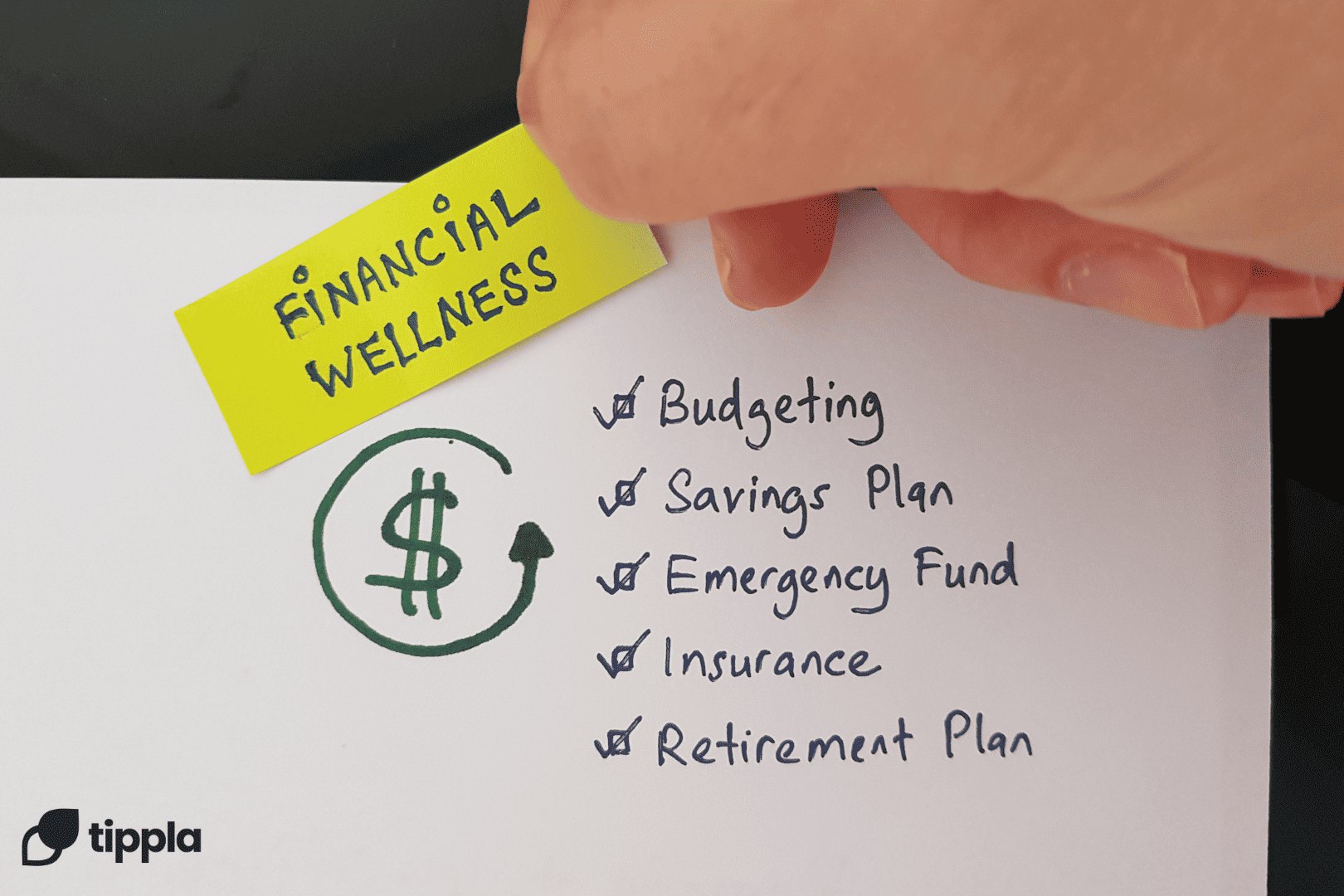Published in July 28, 2021
How to Check My Credit Score in Australia?

How to check credit score in Australia and what to improve?
Your credit score is one of the most important numbers of your life – and you have more than one! Your credit scores reflect your credibilities to companies and it may affect if you are able to get a loan in the future. We get a lot of people asking “how to check my credit score”. In this article, we’ll give you all the information you need to know to check your credit score in Australia and make knowing it your financial superpower.
What is a credit score?
Before we dive into the nitty-gritty details of how to do a credit check, let’s establish first what a credit score is and why it matters.
Your credit score is a number between 0 and 1,200 (or 1,000) that represents how creditworthy you are. In other words, it tells lenders how risky it is to lend money to you. In Australia, you have a credit score with each of the three credit reporting agencies: Equifax, Illion and Experian.
They collect data on your current and previous credit accounts and repayment history. If you ever had a credit card, it would be reflected here. Each credit bureau then uses this information to work out your overall credit score.
Now to the interesting part: This number is a big deal because it’s a massive reference point for lenders when they assess your finance application. They can request your credit report when processing any loan or credit applications that you make.
Especially if you apply for a big sum of money, lenders want to see that you have been able to manage loan repayments responsibly in the past. Your credit score will indicate whether you’re likely to do that.
Credit scores typically range from 0 to 1200, depending on the agency and the higher the number, the better. Your credit score will fall somewhere within a five-point scale of excellent to below average. Here’s a breakdown of each credit reporting agency’s ranking:
|
Equifax Score |
Experian Score |
Illion Score |
|
|
Excellent |
833 – 1200 |
800 – 1000 |
800 – 1000 |
|
Very Good |
726 – 832 |
700 – 799 |
700 – 799 |
|
Good |
622 – 725 |
625 – 699 |
500 – 699 |
|
Average |
510 – 621 |
550 – 624 |
300 – 499 |
|
Below Average |
0 – 509 |
0 – 549 |
0 – 299 |
Why should I check my credit score in Australia?
Information is empowering! The more you know, the better prepared you can be for whatever curveballs might come your way on your personal finance journey. We recommend you check your credit score regularly for these three main reasons especially:
1. A good credit score gives you negotiating power with lenders
When you apply for any type of credit (e.g. loans, credit cards or even mobile phone/internet payment plans), it’s important that you have an excellent, very good, or good credit score. This increases the likelihood of your credit application is approved on the best possible terms (i.e. with the lowest interest rate).
Lenders will be more likely to reject your application if you have an average or below-average credit score. Or if they do approve it, they’ll be likely to charge you a higher interest rate to compensate for the higher risk of lending you money.
2. You can ensure the information in your credit report is accurate
Can you imagine if you got knocked back for a loan because some incorrect information in your credit report painted you in a negative light? It’s almost too ridiculous to consider, but it happens. You have the legal right to access your credit report and to have any inaccurate information changed by the credit reporting agency. So, why waste it?
3. It can help protect you from fraud
We’re living in the digital age and identity theft has never been easier. Criminals can potentially take out credit in your name without you even realising. A quick check of your credit score can keep you up to date with your financial records and alert you to any potential fraud issues.
When should I check my credit score in Australia?
There’s no better time like the present! When it comes to credit scores, it’s always best to do a quick check before you apply for finance with a lender. The fact is, credit scores are sensitive – they don’t handle rejection well. Who does?
If your application with a lender is rejected, it can negatively affect your credit rating. Plus, if you do have bad credit you can then take steps to improve it before you apply for any finance.
Bear in mind that your credit score is determined by a number of factors, including:
- your credit history (including whether you’ve made your scheduled repayments on time for any previous credit you’ve received). Lenders centrally record this information with the credit reporting agencies, and it stays on your credit file for five years.
- any unpaid or overdue debt repayment obligations you may currently have, including any bankruptcy proceedings or judgements.
- the number of credit applications you’ve made over the past five years. If you’ve had several unsuccessful applications, it means that lenders generally perceive you as too great a credit risk.
- whether you’re on the electoral roll and how often you change your address. Lenders prefer stability and transparency with your contact details.
Ways to improve your credit score
It’s not as tricky as you may think. Obviously, one of the simplest ways to earn a good credit score is to ensure you make all of your credit repayments on time. If you’ve always done that, then congratulations – you’re already one step ahead!
Really, the two major things you want to avoid are late or missed repayments. Both negatively affect your credit rating in a big way. You can take simple steps to avoid placing yourself in this position by keeping your creditors informed of any changes to your:
- contact details (i.e. your physical or email addresses and phone numbers), so you don’t miss any important ‘payment due’ notices from your credit provider;
- bank account details, so any of your direct debit repayments aren’t missed.
If, by chance, you do find yourself struggling to meet that credit repayment come the due day, then don’t hesitate to reach out to your lender. Nine times out of ten they’ll be able to offer you an alternative repayment plan before you start missing any payments. At the end of the day, it’s in their best interest that you make your repayments. So, don’t be afraid to ask.
If the issue is you have too many debts to keep track of, it might be worth trying to consolidate them into a single credit arrangement. This will enable you to get on top of your repayments and prevent you from falling behind.
As you can see, you’ve got options! There are many things you can do to develop and maintain a good credit score. So, if you have credit problems (or have had any in the past), don’t stress. There are steps you can take to improve your credit rating and it’s important that you do.
Things that hurt your credit score
Bad credit has consequences. Check your credit score in Australia frequently to make sure it’s still going great. If you want to avoid getting knocked back for finance when you need it, here are six things you’ll want to be mindful of:
1. Not paying your debts on time
You’ll develop a good credit score if you pay any money you owe on time. That doesn’t just include loan or credit card repayments. It also includes utility bills like your electricity and phone charges. If you don’t make your credit repayments on time (or at all), your credit score will drop. It’s as simple as that. This one seems pretty obvious, but the mind can be forgetful. So set a reminder if you need to!
It’s important to understand that catching up on any overdue payments doesn’t remove them from your credit report. All it does is show that the overdue debt has been repaid.
2. Making too many credit applications
Lenders can see any credit application you make because they are all recorded on your credit file, whether you’re successful or not. Making too many applications in a short period can lead them to think that you’re desperate for credit. It’ll also likely drop your score down a few points, leading lenders to think you’re a higher credit risk.
3. Making payday lender enquiries
Payday loans are short-term arrangements to borrow low amounts at high-interest rates. They can help if you’re struggling to make ends meet but it’s important to understand that applying for one goes on your credit file. This may send a signal to lenders that you’re living from pay to pay. The high-interest rates on payday loan products can also make it more difficult for you to make your repayments, making it harder for you to improve your credit score.
4. Having no active credit
You can’t develop or improve your credit rating if you have no ‘active credit’. Or if you’re young and you’ve never had any credit at all, you won’t have a credit history. That means you won’t be able to show a track record of making repayments on time. An easy way to get active credit is to put a utility bill in your name and to make sure you pay it on time. Problem solved.
5. Maxing out your credit card
This means that you spend up to your credit limit on your card. It’s a sign that you’re racking up debt, especially if you’re only making your minimum repayment each month. You’ll have no spare credit capacity, which will make lenders wary of giving you more.
Credit cards also have high-interest rates. Many have interest rates that are three, four or five times higher than other types of finance. Maxing out your credit card will make your repayments more expensive because of the higher interest rates. And if you can’t afford to make them, it will hurt your credit rating.
6. Refinancing/balance transfers
Every time you make a credit application, it goes on your credit file. Any credit application can temporarily lower your credit score, including refinancing applications. So, the benefits of refinancing need to outweigh that temporary drop in your credit score.
For example, it can be a good idea to refinance to get a lower interest rate. It can also be a good idea to refinance and combine two or more debts into a single loan. Doing that will make your repayments much easier to manage. So, a temporary drop in your credit score can be worthwhile in either of those situations.
What’s included in my credit report?
The content of credit reports in Australia has changed since 1 July 2018 with the mandatory introduction of the ‘Comprehensive Credit Reporting’ system. This system was introduced in March 2014, yet the take-up rate among credit providers has been slow.
Prior to the introduction of this system, only negative information was included in credit reports, such as missed or late payment information, as well as defaults. The new reporting system is designed to give a much more detailed picture of your credit history, including:
- all your credit repayment history information for the past two years (both positive and negative), and
- your credit liability information (including the type of credit accounts you currently have or have had, when these accounts were opened and/or closed, credit limits, regular repayment amounts, and the name of your credit provider/s).
In other words, comprehensive credit reporting gives lenders a more holistic picture of your credit history. So if you haven’t checked your credit score since the mandatory introduction of the comprehensive credit reporting system, it’s highly likely that your score will have changed. Check your credit score in Australia now to get a better understanding of where you are at.
How much does it cost to check my report?
You’re entitled to check your credit report in Australia once a year for free from the three credit reporting agencies. These agencies must give you a copy of your credit report within 10 days of you requesting it. It can be a good idea to check with two or more agencies to ensure that your rating is consistent.
If you want to check your credit report more regularly than once a year, there may be fees involved. However, you are entitled to an additional credit free credit report within three months of having a credit application rejected, or if you have had an error corrected.
Know where you stand
When people ask how to check my credit score, they might not realise just how important their credit score is. Awareness is key. Check your credit score in Australia and learn what you can do to improve it.
Knowing your credit score will give you an idea of what to expect when you apply for credit. Don’t make the mistake of applying to multiple lenders in the belief that it will increase your chances of approval. You can’t hide from your credit history. All lenders will have access to much of the same information about your credit history. Plus, as we’ve covered, having multiple applications at once hurts your credit rating. So you can dig an even deeper hole for yourself if you try this misguided strategy.
Some lenders will be prepared to offer you credit even if you don’t have a good credit rating, and some won’t. But always remember that the ones that will approve your application in those circumstances will charge you a higher interest rate. Even a small difference in interest rates can make a big difference to the amount you’ll repay over the life of that debt.
If you don’t currently have at least a good credit score, it makes more long-term financial sense to try and improve it before you apply for more credit. Doing things to improve your current credit score (like budgeting to ensure that you make your existing credit repayments on time) will equip you with the skills you need to better manage your additional credit in the future.
Introducing: Tippla
Do you want to check, monitor and improve your credit score? What if we said it didn’t have to cost you anything? That’s what you get when you sign up to Tippla!
Sign up to Tippla and let us help you reach your financial goals with our smart monitoring and insights. We compare your score from multiple reporting agencies to give you the best understanding of your credit.
Harness this pocket-sized power, join Tippla today.
While we at Tippla will always do our best to provide you with the information you need to financially thrive, it’s important to note that we’re not debt counsellors, nor do we provide financial advice. Be sure to speak to your financial services professional before making any decisions.
Related articles

Understanding The Differences: Credit Scores in Australia vs The US
19/06/2024
If you understand your credit score, then you can...

Financial Planning for Millennials
24/02/2025
In today’s fast-paced world, young adults face unique financial...

What is Credit Repair? How to Fix Your Credit Score
19/10/2021
Mistakes on your credit reports can be quite common....

What does car insurance cover?
28/07/2021
Car insurance companies provide you with multiple coverage options...
Subscribe to our newsletter
Stay up to date with Tippla's financial blog